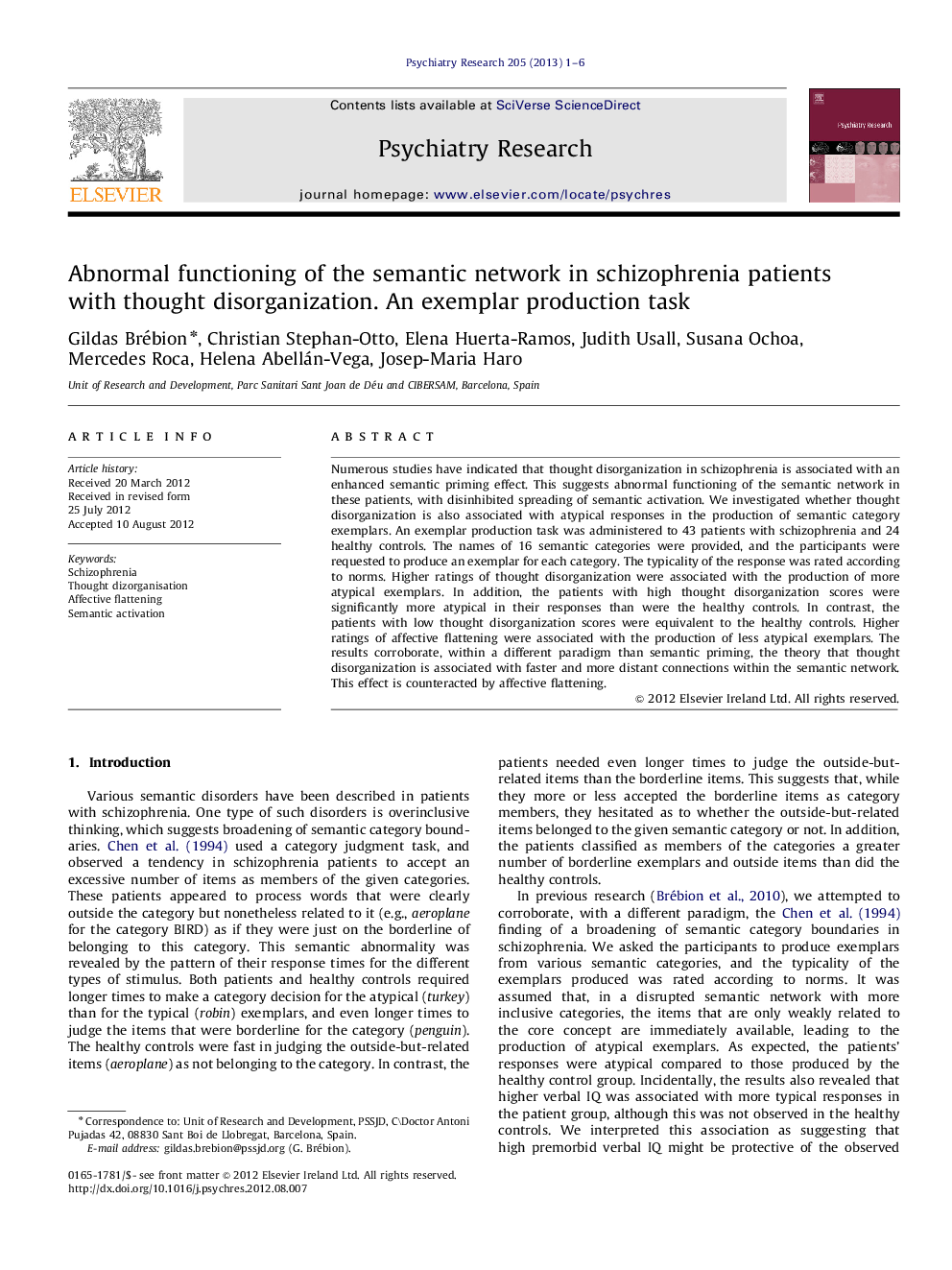| Article ID | Journal | Published Year | Pages | File Type |
|---|---|---|---|---|
| 6815742 | Psychiatry Research | 2013 | 6 Pages |
Abstract
Numerous studies have indicated that thought disorganization in schizophrenia is associated with an enhanced semantic priming effect. This suggests abnormal functioning of the semantic network in these patients, with disinhibited spreading of semantic activation. We investigated whether thought disorganization is also associated with atypical responses in the production of semantic category exemplars. An exemplar production task was administered to 43 patients with schizophrenia and 24 healthy controls. The names of 16 semantic categories were provided, and the participants were requested to produce an exemplar for each category. The typicality of the response was rated according to norms. Higher ratings of thought disorganization were associated with the production of more atypical exemplars. In addition, the patients with high thought disorganization scores were significantly more atypical in their responses than were the healthy controls. In contrast, the patients with low thought disorganization scores were equivalent to the healthy controls. Higher ratings of affective flattening were associated with the production of less atypical exemplars. The results corroborate, within a different paradigm than semantic priming, the theory that thought disorganization is associated with faster and more distant connections within the semantic network. This effect is counteracted by affective flattening.
Related Topics
Life Sciences
Neuroscience
Biological Psychiatry
Authors
Gildas Brébion, Christian Stephan-Otto, Elena Huerta-Ramos, Judith Usall, Susana Ochoa, Mercedes Roca, Helena Abellán-Vega, Josep-Maria Haro,
